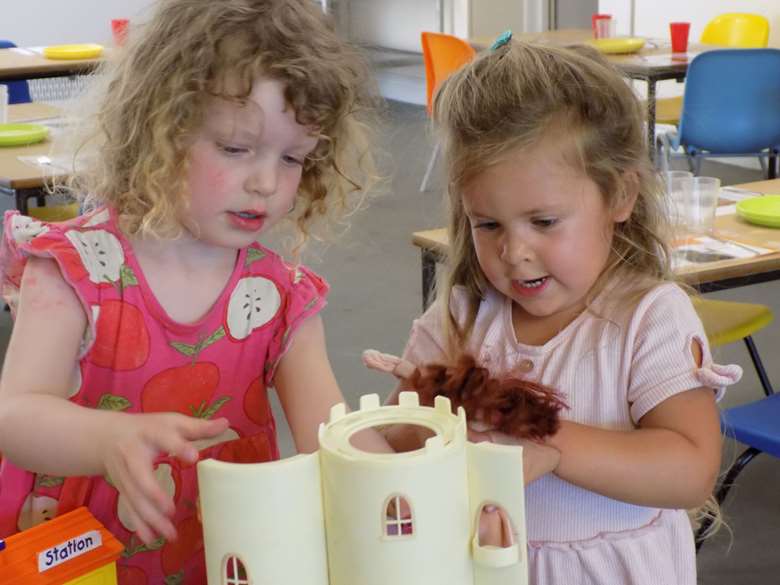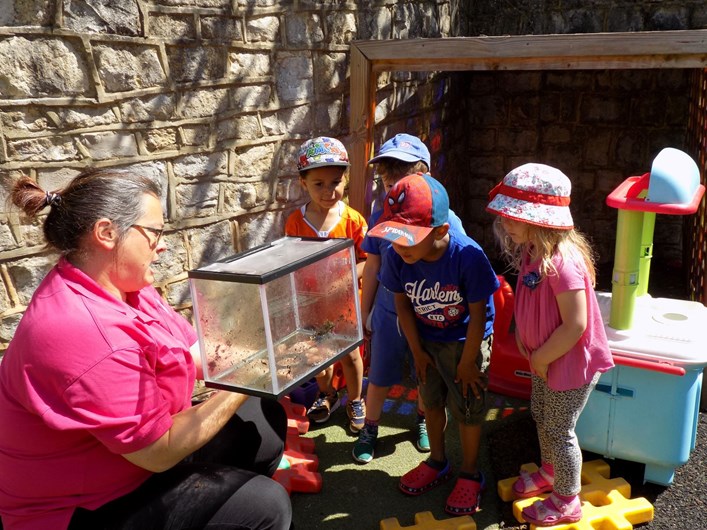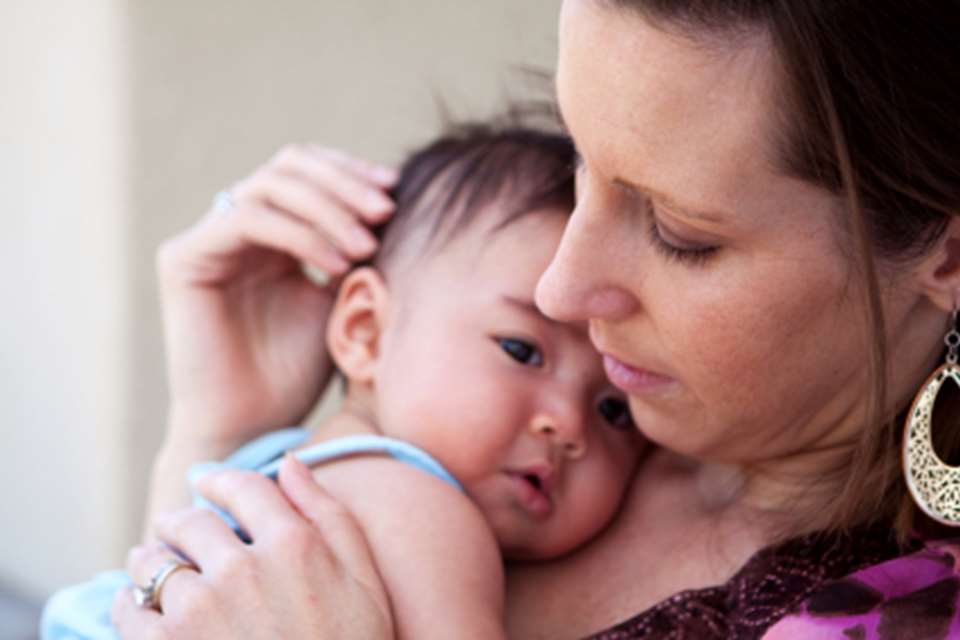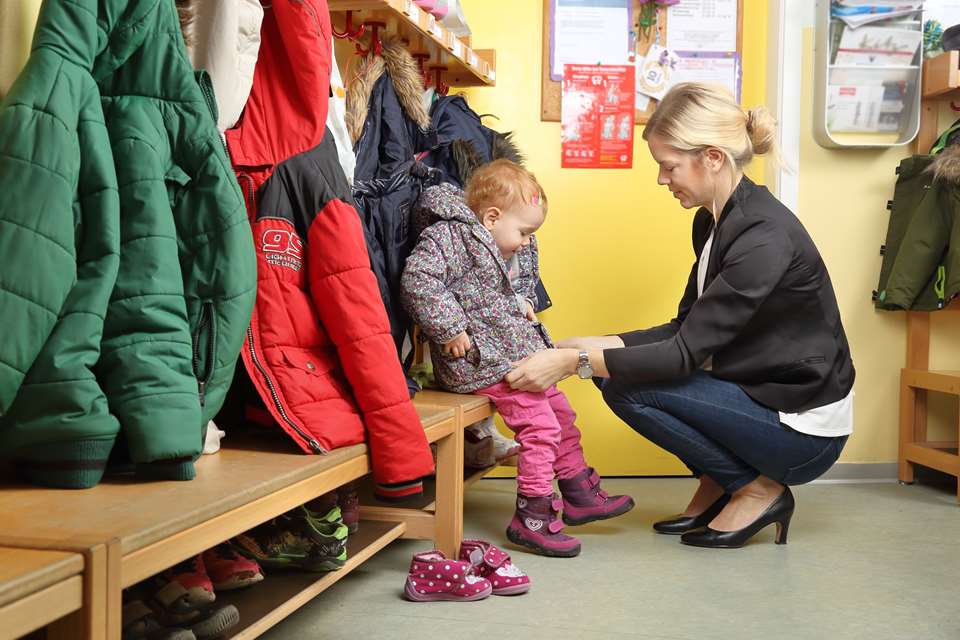Just 10 per cent of early years children have returned to settings
Catherine Gaunt
Tuesday, June 9, 2020
Just one in ten early years children returned to their setting last week, official statistics show.

According to figures published by the Department for Education today, 166,000 children were attending early years settings on 4 June, about 10 per cent of the number of children who usually attend in term time.
An estimated 33,000 early years settings were open on 4 June, up from 25,000 on 21 May. This represents 48 per cent of all settings, with 44 per cent closed and 8 per cent unknown.
The figures are the first weekly figures to show how many children were in early years settings and schools since the Government asked schools and settings to welcome back all children to nursery, Reception, Year 1 and Year 6 from 1 June.
The figures show that around half of settings and schools (52 per cent) that normally accept at least one of these year groups were estimated to be open to children in nursery, Reception, Year 1 or Year 6 on 4 June.
Attendance in state-funded nursery and primary schools was higher than the national average on 4 June at 11 per cent, which the DfE said reflected the wider opening to children in addition to those of critical workers and vulnerable children.
The DfE said that it expected numbers to increase next week, as a number of schools who reported that they were closed to these year groups last week indicated that they expected to be open to at least one of them on 8 June.
The figures also show that 91 per cent of early years or education settings were open in some capacity, up from 80 per cent on 21 May.
The number of children attending an education setting who have an Education, Health and Care Plan (EHCP) was 42,000, up from 23,000 on 21 May.
Attendance statistics are published on a weekly basis, looking back at the previous school week.
Education Secretary Gavin Williamson said, ‘Last week marked the first, cautious step in a phased approach to bringing more children back into the classroom with their friends and teachers again. It is encouraging to see the majority of primary schools open their doors to more pupils, and almost double the number of children now attending early years settings.
‘This is still a difficult time for families and many feel anxious about their children going back - but I can reassure families, and those working in education settings, that the welfare of children and staff will continue to be at the heart of all our decisions.
‘Families should also be reassured by the incredible work teachers and support staff are doing to adapt their settings and routines, while making sure schools and nurseries remain as welcoming as they have always been.’
Neil Leitch, chief executive of the Early Years Alliance, said, ‘These sobering figures clearly show the scale of the challenge facing nurseries, pre-schools and childminders as a result of the coronavirus outbreak.
‘While many childcare providers have been working hard to prepare to welcome children back into safe and positive learning environments, the demand for places is nowhere near what it would have been in normal circumstances.
‘This means that settings across the country, which were often already struggling financially as the result of years of Government underfunding, are facing a sharp drop in income, with many unsure if they will be able to remain sustainable in the long term.
‘We have long warned of the impact that the expected fall in parental demand for places during this pandemic would have on the sector. Despite this, the Government has failed to commit to any form of transitional funding to help support early years providers through this incredibly difficult period, or to offer settings any support with the additional costs of operating safely during this crisis - such as cleaning and PPE - as it has done for schools.
‘Ministers have made clear their desire to return to some kind of normality as soon as possible, but without a functioning, sustainable childcare sector, this simply won't be possible.’
According to analysis of the figures by the National Education Union (NEU) out of 2.4 million nursery, Reception, Year 1 and year 6 pupils, just 300,000 – one in eight - attended on Monday 1 June, rising to 480,000 – one in five - by Friday 4 June.
Kevin Courtney, joint general secretary of the National Education Union, said, ‘The figures released show what a very long way the Government has to go to convince the nation’s parents and teachers that a wider opening of schools is safe.
‘Just 35 per cent of eligible schools (state and independent) opened any additional classes on Monday 1 June, this rose to 52 per cent by the end of the week. These reflect National Education Union figures last week showing that 44 per cent of state schools did not start opening more widely on 1 June.
‘These Government proposals were not discussed with unions representing teachers, school leaders or support staff before they were announced. We call on the Government to work with the teaching profession and education unions to develop a secure plan for the wider opening of schools and invest the necessary resources to make it a success.’
CASE STUDY
Mama Bear's Day Nurseries in Bristol started to reopen to more children last week.
All 23 of the group's settings across the south-west of England are open, operating one to two bubbles of up to 16 children each per setting, and are running at between 20-40 per cent of previous occupancy.
The team have been preparing the settings for the children’s return and implementing a programme of staff training to ensure staff are up-to-date with the new Covid-19 procedures.
Tony Driffield, who co-owns the nursery group with his wife Bev, said, 'We have done everything possible to ensure the safety of the children on their return to nursery.
'Of course we have been supporting the children of key workers and vulnerable children throughout the crisis so a lot of measures were already in place but we have been working hard to make the changes required to accommodate more children in our settings.
'It has been wonderful to welcome the children back this week and see them having fun and learning. It’s also been great to see our new procedures in place and working as they should.'
Returning children have enjoyed lots of educational and fun activities this week, including finding frogs in the garden, lunchtime picnics, imaginative play and learning about the life cycle of sunflowers, Mr Driffield added.

'It has been really tricky to manoeuvre through this crisis and there is a long way to go for all of us yet but our staff have been phenomenal and so adaptable which has been fantastic. We’d also like to thank our parents for their support and we look forward to welcoming more children back in the months to come.'










